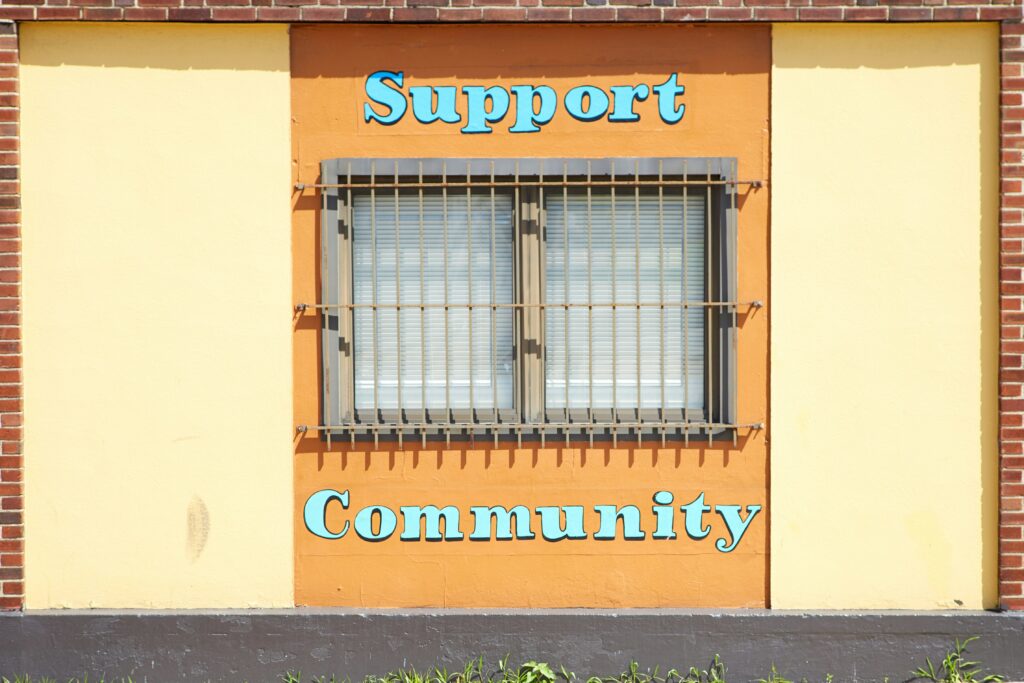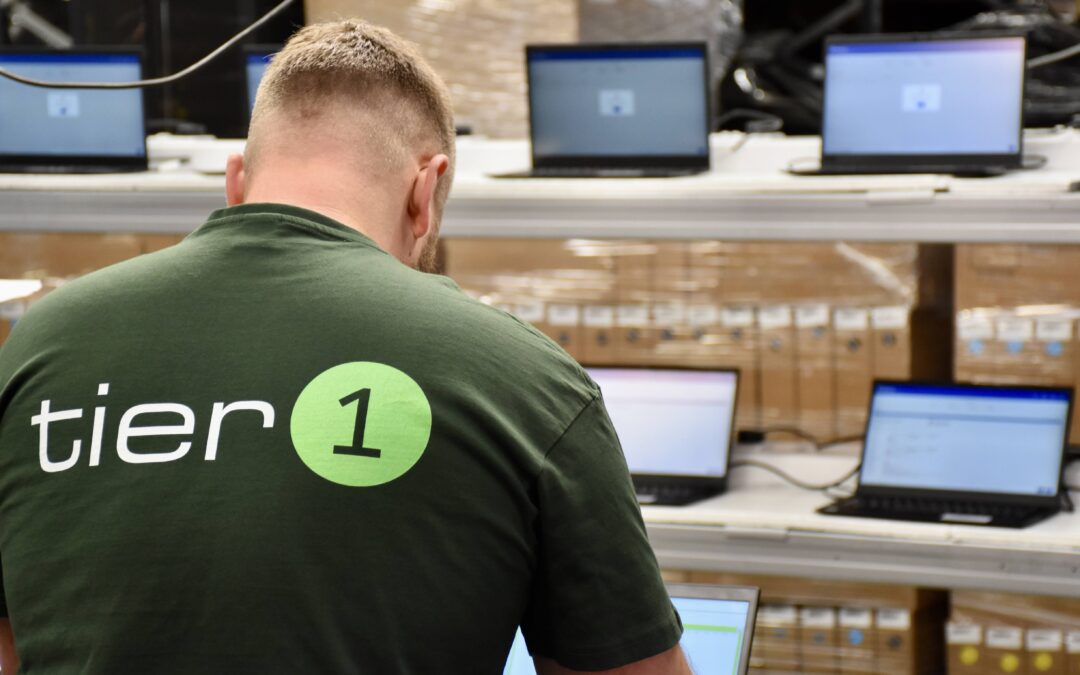We have become increasingly aware of economic, social and environmental issues. Our renewed sense of community, which naturally came into focus during Government lockdowns, furthered the opportunity for ethical businesses to drive social impact, rather than simply be motivated by profit.
The UK government’s and the subsequent COP conferences, have all shone a light on the fact that individuals and businesses should think locally to act globally; acting with consideration of these issues day-to-day.
The social value economy has become increasingly important as businesses navigate this long financial downturn, helping them to maximise value for money. This is particularly relevant within the public sector where the cost of pandemic recovery and budget reductions combine to stretch departmental budgets to the maximum.
What is meant by social value?
Value is often associated with monetary worth, yet non-financial value gives us a far broader comprehension of what ‘worth’ really means. Our experiences shape every aspect of our lives, impacting our well-being. Our health, relationships, work/home life, finances and education. By driving social impact, there is a substantial opportunity to make the world a better place for all.
When it comes to commercial social impact, social value can help us to make decisions on where to invest resources, making sure that whatever goods or third-party services you buy, also generates further societal benefits. This may be skills development training, the creation of job opportunities for disadvantaged groups, promoting a healthier standard of living, supporting local supply chains or encouraging community sustainability; forging strong, resilient societies.

What is the Social Value Act 2013?
For public sector organisations, the delivery of social value isn’t optional following a landmark piece of legislation; the which came into force in January 2013. *
The act requires every public sector organisation in England, and some in Wales, to assess their procurement practices and decision-making criteria when awarding contracts. Both the organisation and their suppliers must be able to demonstrate that they have considered how the goods/services that they are proposing to buy will improve the economic, social and environmental well-being of their region.
By normalising social value in commercial activities, the act’s objectives are to build momentum of non-financial outcomes, so that public spending does more than meet the immediate need.
The legislation does not only apply to the government body itself but extends to all suppliers and third parties involved in project delivery, building a more responsible supply chain, and spreading the web of social value even further. This might mean checking that your suppliers pay the living wage, employ people from disadvantaged groups, have a zero-landfill policy and have a decarbonisation strategy. But what does the Public Services Social Value Act require?
How is the Social Value Act measured?
Although it differs between specific public sector bodies, the minimum weighting that should be applied to social value is 10%. ^ Government departments are expected to report on the social value of their major contracts, but how is social impact measured?
Social Return on Investment (SROI) is a method of measuring inputs, outputs, outcomes and impact of the benefits relative to the costs of achieving them. It provides a ratio of the net present value of benefits to the net present value of the investment. For example, a ratio of 3:1 indicates that an investment of £1 delivers £3 in social value. +
An extension of the economic cost-benefit analysis model, Social Cost-Benefit Analysis (SCBA) is a systematic tool for identifying, measuring and comparing benefits and associated project costs. Similar to SROI, CBA quantifies social impact as a monetary value but it’s adjusted to account for the full spectrum of costs and benefits including social and environmental.
The National TOMs framework was developed by Social Value Portal in 2017. This model of Themes, Measurements and Outcomes has 5 themes, 17 outcomes and 35 measures, reflecting the issues that matter to UK communities. Financial proxy values are used to place economic worth on societal impact. TOMs also works for the private sector, providing a minimum standard of reporting.

Why is social value important for businesses?
Businesses also gain; the legislation is designed as a tool to help public sector bodies streamline procurement and get more value for money.
Increasing ROI will achieve greater economic growth and improved service delivery; greater engagement with the community will improve quality of life and overall well-being. In turn, this creates a more resilient, motivated workforce with increased job satisfaction. Ultimately building a strong business and a robust reputation. ** Furthermore, social value can increase social mobility, reduce inequalities and reduce demand for health services.
Reporting value generation to stakeholders and shareholders is key. Social value does more than just help a community but also boosts a business’ bottom line.
In 2016, Manchester City Council reported that by considering social value in all
construction contacts – through the multiplier effect of local supply chains, the council’s
£184m spend was transformed into £687m.**
How can your business generate social value?
Consideration should start at the very beginning of the procurement process. It’s important to have a clear understanding of what specific social goals your business is aiming for; e.g. creating employment opportunities, reducing e-waste and protecting the environment.
Whilst the social value delivery will depend on the specific project, one consistent element prevails across all businesses. As very few organisations operate without technology, transitioning to more sustainable IT solutions will increase overall social value.
Refurbished IT procurement.
As our technology depreciates completely within 3-4 years, refresh cycles often still follow a similar time scale, even though the device is perfectly serviceable. Moreover, trusted refurbished IT platforms can upgrade any asset to a specification, unlike brand-new, off-the-shelf technology. Renewed assets are up to 80% cheaper than brand-new machines, ^^ and come with a refurbisher warranty of up to three years; longer than most manufacturer guarantees. Refurbished technology also promotes digital inclusion; providing affordable access for individuals and families; bridging the digital divide. As we saw during the pandemic, not every child had access to a laptop for home-schooling.
Conserving resources.
Following the circular economy model, any activity that extends the lifespan of the device will reduce the need for new production. Regular lifecycle management reduces costs significantly. Maintaining and potentially upgrading equipment and its operating system ensures the highest residual values when you come to sell redundant IT assets; you might also save money by redeploying machines into other areas of your business.
The environmental and social consequences of virgin, finite resources extraction are far-reaching. Therefore, by extending lifetimes, we eliminate environmentally destructive mining.
Recycle end-of-life IT assets.
There will be a time when broken or faulty assets are no longer viable as a unit, but the same isn’t true for its components. Secure data erasure has been undertaken to provide an ITAD chain of custody, demonstrating that the GDPR data destruction requirements have been met, the device can be recycled to stock the reverse supply chain. Leading IT asset disposal companies have community recycling initiatives and zero landfill policies, eradicating e-waste landfill entirely to ensure that no hazardous chemicals leach into our soils and water systems.
Lowering carbon footprint.
As manufacturing and transportation accounts for 80% of an asset’s total lifetime CO2e emissions, if a device can be upgraded, and resold this prevents the generation of these emissions, and those associated with virgin mining. What’s more, responsible environmentally friendly ITAD partners are highly likely to be committed to society, people and the environment. They may align with the UN Sustainable Development Goals and be working towards carbon neutrality, with energy-efficient facilities and electric fleets.
Circular ITAD services will help you contribute to a more sustainable future, however, not all IT asset disposal services are equal. Key questions to ask your ITAD supplier might concern the environmental and IT asset disposal accreditations they hold or how they create their own social impact – Organisations making social value strides will be happy to talk about their initiatives. They may create local employment opportunities, foster community engagement and inclusion, or partner with charities.

The Social Value Act provides significant opportunity for public sector bodies to think more comprehensively about the benefits that their contracted service partnerships could deliver to the environment and the community. However, social value metrics extend this opportunity to responsible private organisations who also recognise this importance, not just for the social value, but for the increased ROI, improved business growth and a stronger reputation.
Whilst key measurement metrics have been developed to help assess the economic impact of social value, this should not stop once the contract is awarded. It’s crucial to monitor and assess both the contracted service and their third-party partners against key performance indicators, ensuring the true social impact is achieved and where possible, exceeded.
*Local Government Association, ^UK Government, +NEF Consulting, **Public Health England, ^^Signals IT.
Through our comprehensive range of fully circular, environmentally friendly ITAD services, we’ll help you limit your ecological impact, develop your own sustainability policy to ensure you reach your own social value goals.
tier1 are committed to achieving net zero by 2040. We are aligned with UN Sustainable Development Goal 12, (Responsible Consumption and Production) and are proud to have achieved the Silver EcoVadis Sustainability global standard.
As you’ll expect from your ITAD partner, we guarantee your legal compliance with WEEE and GDPR, preventing any environmental, or data governance issues in the future.
Ask our friendly team about our lifecycle management or data wiping services. They are also always happy to chat about our prison IT Recycling programme – Call 0161 777 1000 (Manchester), 01621 484380 (Maldon).
Visit www.tier1.com or our 5-star refurbishment resales platform, tier1online.com
Resources.
UK Government, Local Government Association, Legislation.gov.uk, Crown Commercial, Social Value Portal, Public Health England, Social Value UK, CECA, NEF Consulting, The University of Queensland, Coventry City Council, Leeds City Council, Signals IT.



